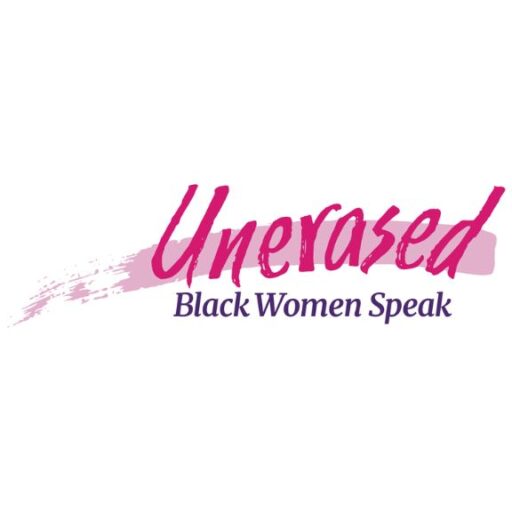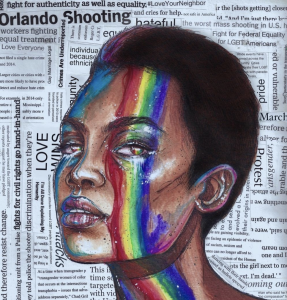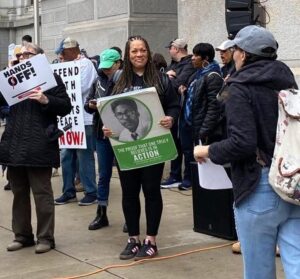By Tracy Chiles McGhee
“I speak with you on this occasion because you are young, gifted, and Black. I for one can think of no more dynamic combination a person might be…Look at the work that awaits you!”
Those inspirational words, spoken 60 years ago by acclaimed playwright Lorraine Hansberry (1930 – 1965) still resonate today. The influence of Black youth expressing their brilliance and harnessing their power remains a catalyst for change, especially during the most consequential election of our lifetime.
For today’s young Black voters, grouped in the Generation Z and Millennial cohorts, civic engagement is more than a duty. They are anchored within a legacy of changemakers fighting for the freedoms that democracy professes to safeguard.
Nina Simone (1933 – 2003) amplified her dear friend Hansberry’s message in 1969 when she introduced the song “To Be Young, Gifted, and Black.” This tune became an anthem of the civil rights movement and a torch for youth as they emerged into young adulthood.
We channel the spirt of Simone who once remarked, “There’s no excuse for the young people not knowing heroes and heroines…”
We capture the reflections of three student activists who crystalize a vision for then, now and the ages.
Azsadee Peek, 20, of Stamford, Conn, is a sophomore political science major at Howard University and founder of Campus Trailblazers. “To be young, gifted, and vote is to be civically engaged. It means always being aware of what’s happening around you, from your community to your college campus, and advocating for others who may not have a voice.”
Azsadee reminds us that the power of the vote extends beyond the individual; it’s about representing those who have been historically marginalized and ensuring their voices are heard.
The issues young Black voters care about reflect the urgency of our times. Reproductive rights, racial justice, gun violence, climate change and access to affordable healthcare are at the forefront of their concerns. Azsadee recalls the recent case of Marcellus Williams, a man wrongly convicted and executed this year.
“The case deeply impacted me,” she says. “It’s a reminder of why we need to mobilize our communities, register to vote, and drive collective action to create real change.” Stories like Williams’ highlight the intersection of racial injustice and the urgent need for systemic reform—issues she says young Black voters are determined to address through the ballot.
Lorraine Hansberry, award-winning playwright of the acclaimed Broadway play Raisin in the Sun, herself was moved to action by a similar case decades earlier. The 21-year-old Hansberry was moved by the wrongful execution of Willie McGee, a Black man in Mississippi accused of raping a white woman in 1951. After covering the trial, she was inspired to write her poem Lynchsong.
In the spirit of Hansberry, today’s young activists continue to carry that torch, recognizing the power of voting as a tool to fight for the changes necessary to end racial inequities.
For Rebbie Davis, 22, of Chicago, a graduating senior at Howard University and president of the Howard University’s Writers Guild, it’s making a foot print for those who follow. More than participating in democracy; it’s about shaping the future of Black communities.
“To be young, gifted, and vote means to understand the issues that are impacting your community, supporting legislation and policies that will help combat these issues, and voting for candidates that are just as passionate as you are about eradicating these issues out of your great cities and hometowns,” she says.
Rebbie’s passion for social justice is rooted in the belief that each vote has the power to transform lives. This election season, she will be motivated to vote on fair and equitable housing and reproductive rights, two issues that deeply affect her community.
Makayla Myers, 22, of Philadelphia, is vice president of the NAACP Pennsylvania State Conference. She is also president for Black Girls Vote at Community College of Philadelphia.
“To be young, gifted, and vote means more than just a phrase to me; it’s a movement,” says Myers. “Young people are realizing their power—we’re standing up, showing up, and using our voices to demand the future we deserve. Voting is our way of protesting at the polls.”
Myers, a student at Community College of Philadelphia, believes that young voters hold the potential to shift the political landscape, particularly on issues like public health, gun violence, and economic equality. “We’re also focused on securing access to good jobs and ensuring our education leads to better opportunities, so we aren’t living paycheck to paycheck but enjoying our lives as we deserve.”
The energy and passion of today’s young Black voters mirror the movements of the past, where Black youth were pivotal in demanding justice and equality.
Lorraine Hansberry’s words, spoken during the 1960s era of antiwar protest and Black rights movements, still ring true today, as young, gifted, and Black voices rise to meet the challenges of their time. Shaping the future, they have the potential to impact generations to come when they show up and demonstrate precisely what it means to be young, gifted and VOTE.
Tracy Chiles McGhee is a Writer and Constituency Engagement Advisor for Unerased | Black Women Speak.




